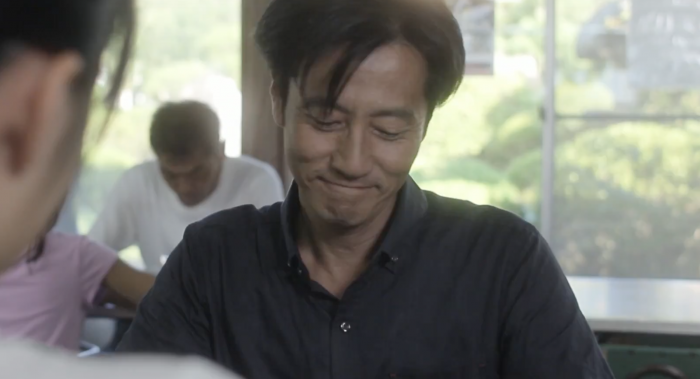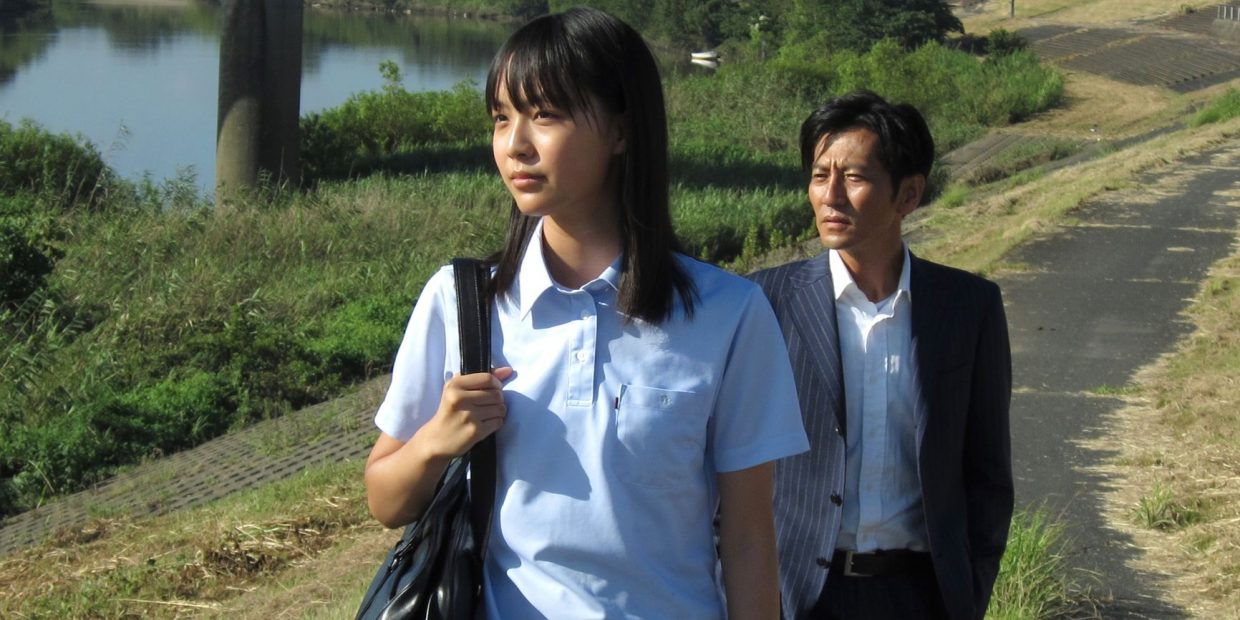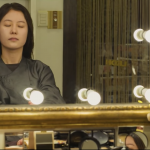Director: Akihiro Toda
Far East Film Festival review
Being yourself is a complicated feat in Akihiro Toda’s strange and wistful examination of the roles we play and the connections we make and lose. With a story that progresses less in terms of events unfolding than truths being revealed, The Name is a gradually demystifying drama that works through its identity crisis to arrive at a place of warm, tender acceptance. It’s an odd film, but then so’s life if you think about it for too long.
The initial meeting between the film’s two lonely leads could’ve served as the basis for a bizarre, existential screwball comedy. Middle-aged divorcé Masao has the curious habit of lying about himself to everyone he meets, adopting fake names and fabricating self-serving stories of wealth and family. His deceitful tendencies threaten to bite him in the ass when his boss at the recycling facility catches on that he may not have the wife and daughter that he claimed to. Masao’s job is saved by the unexpected arrival of Emiko, a teenage girl who somehow knows all about Masao’s lies and, for reasons initially known only to her, is all too willing to play the role of his daughter.
Though Masao is at first ambivalent about the arrival of this girl in his life – receiving few satisfying answers when he questions her on her motivations – he soon begins to accept and even enjoy Emiko’s company. The two of them take trips together. She indulges him in his fishing hobby and helps him clean up his messy home, while it quickly becomes apparent that she gets just as much out of their unconventional arrangement as he does.

As a film that muses on the nature of interpersonal connections, The Name appropriately structures its non-linear story around the solitary and subjective perspectives of its two leads. The first and most melancholic of the film’s three chapters focuses on Masao, a meek-mannered man who likely assumes fake identities because he doesn’t think too highly of himself. An uncomfortable reunion with his ex-wife hits home how the friends and companions from his old life have now moved on. But without any new connections to take their place, Masao is left feeling as though he no longer matters. “What if he is the real me and I’m the fraud?” Masao asks as he contemplates one of his aliases. It’s the sad, wishful thinking of a man plagued with thoughts of inadequacy.
Meanwhile, Emiko, whose personal story occupies the film’s second section, exhibits a more distinctly adolescent form of alienation. Though the schoolgirl initially seems to have a bit more of a social clique around her than Masao, her only parental figure is a mother she barely talks to and even Emiko’s friends start to abandon her after typical teenage tensions arise.
While Emiko’s scenes without Masao tend to hammer in her identity crisis a little too bluntly (her climactic monologue seems especially extraneous), the subplot of Emiko acting in the school play offers some thoughtful ironies about the difficulty of distinguishing ‘the real you’ from the persona you’re assuming. A scene where she rehearses the play with Masao, for instance, is a sweet encapsulation of the illusions that people present and buy into as they go about their day to day lives.
There are stretches in The Name where the work struggles to make an emotional connection (its Emiko-led segment in particular sometimes comes across as more coldly ‘interesting’ than truly engaging) but a heartfelt conclusion ensures that the film amounts to a charming and soothingly resonant experience. Like the unusual relationship it portrays, Toda’s drama starts off as quirky and enigmatic but over time evolves into something movingly genuine.





